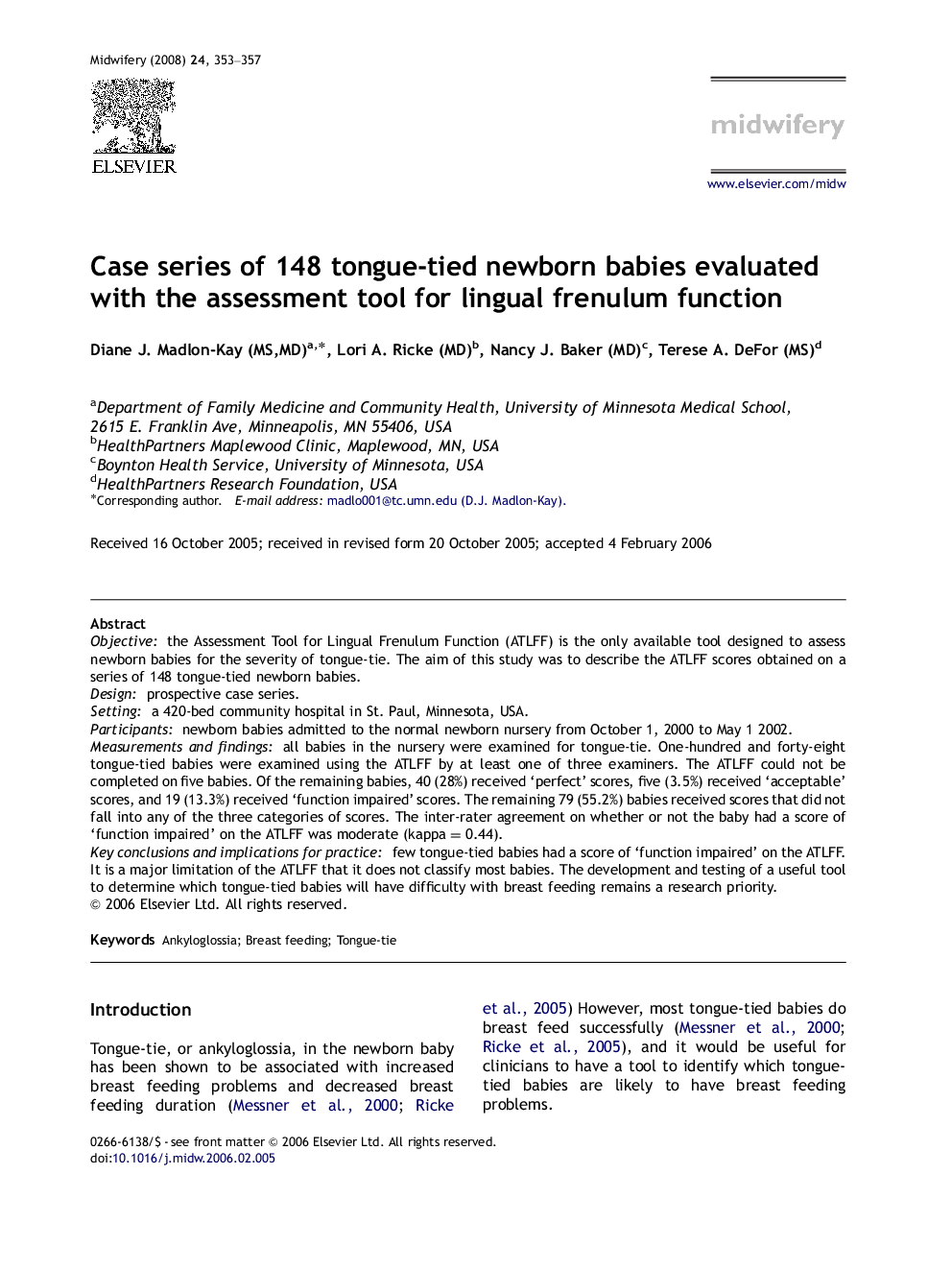| Article ID | Journal | Published Year | Pages | File Type |
|---|---|---|---|---|
| 1085286 | Midwifery | 2008 | 5 Pages |
Objectivethe Assessment Tool for Lingual Frenulum Function (ATLFF) is the only available tool designed to assess newborn babies for the severity of tongue-tie. The aim of this study was to describe the ATLFF scores obtained on a series of 148 tongue-tied newborn babies.Designprospective case series.Settinga 420-bed community hospital in St. Paul, Minnesota, USA.Participantsnewborn babies admitted to the normal newborn nursery from October 1, 2000 to May 1 2002.Measurements and findingsall babies in the nursery were examined for tongue-tie. One-hundred and forty-eight tongue-tied babies were examined using the ATLFF by at least one of three examiners. The ATLFF could not be completed on five babies. Of the remaining babies, 40 (28%) received ‘perfect’ scores, five (3.5%) received ‘acceptable’ scores, and 19 (13.3%) received ‘function impaired’ scores. The remaining 79 (55.2%) babies received scores that did not fall into any of the three categories of scores. The inter-rater agreement on whether or not the baby had a score of ‘function impaired’ on the ATLFF was moderate (kappa=0.44).Key conclusions and implications for practicefew tongue-tied babies had a score of ‘function impaired’ on the ATLFF. It is a major limitation of the ATLFF that it does not classify most babies. The development and testing of a useful tool to determine which tongue-tied babies will have difficulty with breast feeding remains a research priority.
